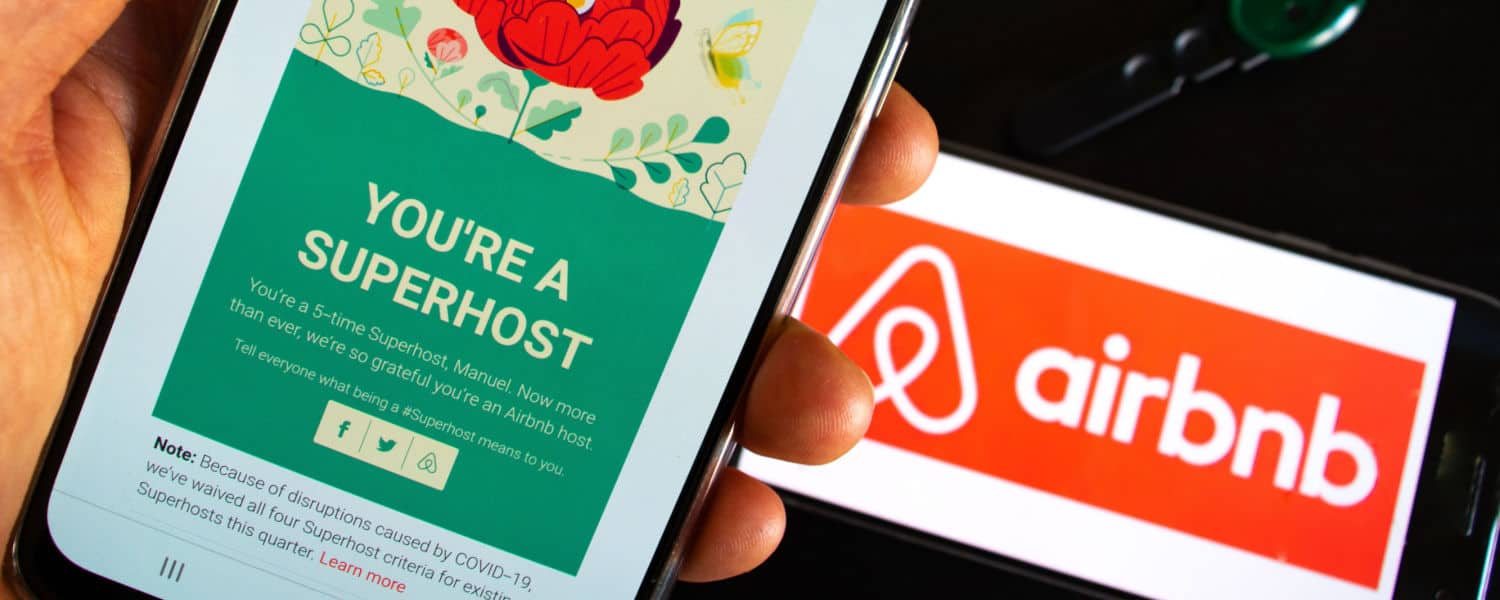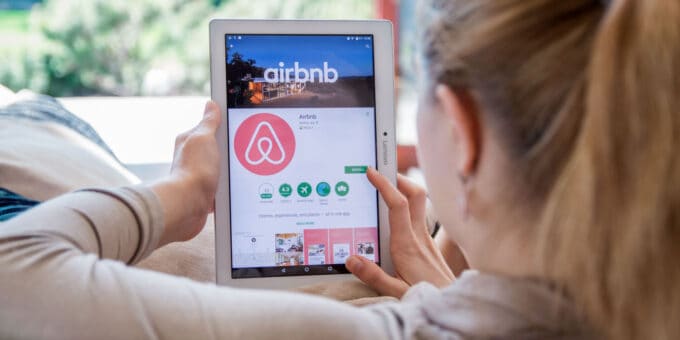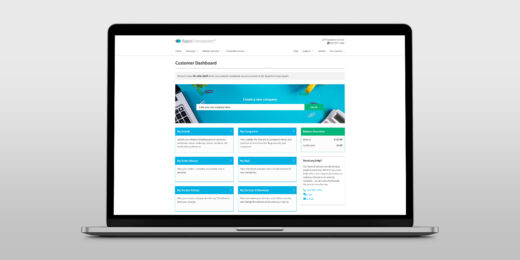In just 15 years, it has grown from a couple of air beds in a San Francisco apartment to a multi-billion-dollar global company.
Airbnb has taken the holiday rental market by storm over recent years, dominating more than 220 countries and regions across the world – meaning you’ll find an Airbnb just about anywhere you visit.
So, if you’re a natural host or live in a tourist hotspot, and have some spare room – Airbnb could be an extremely lucrative investment.
In this guide, we’ll explore everything you need to know about becoming an Airbnb host.
Understanding the regulations
Before setting up as an Airbnb host, it’s important to first look into the legal regulations in your area, as certain locations are subject to restrictions that may impact your ability to host guests.
In Greater London, for example, the ‘90-night rule’ means that residential premises may only be used as short-term rentals for 90 nights of the calendar year. While in Scotland, you’ll need to obtain a license to use your property as a short-term letting.
Depending on the nature of your Airbnb rental, you may also be required to attain planning permission from your local authority. This usually applies to properties that are solely being used as holiday rentals and not being lived in.
You should always check with your local council, to ensure you’re complying with the regulations specific to your area.
Informing your mortgage company
If you have a mortgage on your property, then you will need to contact your mortgage provider to inform them of your Airbnb plans.
Many lenders have conditions relating to how the property should be occupied and an Airbnb business could be a breach of your current terms; so it’s vital to communicate your plans before becoming a host, so that your agreement can be updated accordingly. The same also applies to your home insurance.
If you live in a flat, you may need to also gain permission from your freeholder.
Paying tax
As an Airbnb host, you are responsible for paying tax on the income you earn from your rental.
If you are living in the property that you’re renting out, the process is relatively simple. If you earn less than £7,500 per year, the Rent-a-Room scheme means you are exempt from paying taxes on the rental income you receive. However, if you earn more than £7,500, you will need to notify HMRC and file a Self Assessment tax return.
If your space is a second property or is not your primary residence, then you can earn up to £1,000 tax-free each year. Any amount over this is taxable and will be subject to Income Tax. The amount of Income Tax you are liable to pay will depend on your income bracket, as shown in the table below.
| Income | Tax Rate | Band |
| Up to £12,570 | 0% | Personal Allowance |
| £12,571 – £50,270 | 20% | Basic Rate |
| £50,271 to £150,000 | 40% | Standard Rate |
| £150,000 + | 45% | Additional Rate |
For those based in Scotland, different tax rates and bands will apply. You can find out more information on GOV.UK.
As an Airbnb host, there are several expenses you may be able to claim against your rental income when calculating your taxes. Some of the most common expenses that you can claim include:
- Mortgage interest
- Repairs and maintenance
- Cleaning and laundry
- Insurance
- Utility bills
- Rental commissions
Getting insured
From guest injuries to broken furniture and unpredictable weather – renting out your Airbnb space presents risks that you’ll want to ensure you have adequate cover for.
As mentioned earlier, you should not assume your current home insurance will cover you, even if you live in the building you are renting out.
Airbnb does offer its own form of insurance known as Host Protection Insurance, which provides cover of up to £1 million in the event you are found legally responsible for a guest getting hurt, or their belongings being damaged or stolen while you are hosting them.
This insurance is automatically included as part of your registration as an Airbnb host, and includes cover for any people who help you host, such as co-hosts and cleaners.
However, this insurance does not cover all situations, so it is important to carefully review the policy details to understand what is covered and what is not. You will likely need to obtain additional insurance coverage, such as a comprehensive homeowner’s insurance policy or commercial liability insurance, to ensure you have full protection.
Assessing your space
From the smallest of cubbyholes to giant country estates – no matter what available space you have – be it a treehouse, tent, or mansion – there’s probably a guest it will appeal to.
The key to turning your space into a successful Airbnb listing will be honing in on what makes your space unique and showcasing this to your audience, whilst being completely transparent about what your guests can expect from their stay. Perhaps your space can offer an incredible view, a quick commute to a prime destination, or even some interesting history – you’ll want to focus on these features to help your space stand out from the crowd.
You will also need to consider factors such as where guests can access – for example, will they have free rein of an entire property? Will they be sharing communal spaces such as the bathroom or garden? Will they have access to kitchen facilities? No matter what you decide, you’ll want to ensure you communicate this clearly to your guests from the outset, and keep your space immaculately clean and as cosy as can be.
Preparing your space for guests
Taking some time to carefully consider and prepare your space for Airbnb guests can go a long way to ensuring a successful hosting experience. By following the below steps, you can make a huge difference to your guest’s stay and set yourself up for a glowing review:
1. Declutter and clean
As already mentioned, your space should, at the very minimum, be immaculately clean and well-presented. Remember, less is more. So, try and keep rooms organised and clutter-free. This means removing personal items, decluttering surfaces, and cleaning each area from top to bottom.
2. Stock up on essentials
Make sure your guests have everything they need during their stay, such as fresh towels, clean linen, toiletries, and basic kitchen supplies. You should also consider providing extras like sweet treats, coffee, and tea, to make your guests feel welcome.
3. Check for safety hazards
Walk through your space and carefully inspect it for any potential safety issues, such as loose electrical outlets, tripping hazards, or broken furniture. Be sure to make any necessary repairs, replacements, or installations in the form of alarms and detectors before advertising your space, so that it is completely safe and fully equipped for your guests. This will help to avoid costly accidents or complaints.
4. Create a guest guidebook
Providing information for your guests in the form of a guidebook is a great way to enhance their experience and boost your hosting skills.
Your book could include details about your home’s amenities, local restaurants and attractions, transportation options, and emergency contact details.
5. Add personal touches
It’s often the personal touches that people remember most, so consider ways to enhance your space so that it feels extra welcoming and inviting for guests – whether it’s fresh flowers, artwork, or treats for the dog (if your space is pooch-friendly, that is!).
Creating your listing
Once your space is prepared, it’s time to list your rental. To set up your listing, you’ll need to sign up for an Airbnb account, which you can do on their website or by downloading the Airbnb app.
Once logged in, simply click on the ‘List your space’ button on the Airbnb site and follow the steps to select the type of property you want to list – be it your entire home, a private room, a shared area, or a unique space.
1. Write your description
A well-written description is key to attracting potential guests and helping your listing to stand out from the competition.
As mentioned earlier, you should highlight what makes your space unique and paint a picture of what it’s like to stay there. Use descriptive keywords that guests may search for, such as names of local tourist attractions, and explain, in a nutshell, why it’s a great location to stay in and who your listing will likely appeal to most – i.e. couples, families, solo travellers, and pets.
Use clear formatting such as bullet points, headings, or bold typography, so that your description is easy to read and key features stand out.
2. Highlight amenities and space
You should list any special amenities that set your space apart from other listings, as well as the essentials – for example, a self-check-in option, designated parking, Wi-Fi, hot tub, kitchen area, TV, tea & coffee-making facilities, and so on.
Your description should also clearly indicate the maximum number of guests your space can sleep, and details of your cancellation policy.
For example, you can opt for a flexible cancellation policy which allows guests to cancel 24 hours before they check in and receive a full refund, or a slightly stricter option that gives customers 48 hours in which to cancel their booking for a full refund.
Some hosts may choose to make their booking non-refundable. While this is better for revenue, bear in mind that this option could make your listing less popular with guests.
3. Select your photography
Quality photos can make a huge difference to the success of your Airbnb listing. You should aim for around ten to fifteen photos that convey the character of your space, the surrounding area, and local attractions, as well as some of the amenities you’ve mentioned.
Your photos should reflect the kind of experience your guests can expect when they stay with you. Consider elements as simple as dressing the table, laying out breakfast, or adding personal touches like fresh flowers to really set the scene in your photos.
In a nutshell, your Airbnb listing photos should demonstrate what kind of experience your guests can expect if they book with you.
For optimal success, you may even consider hiring a professional photographer to increase your booking success rate.
4. Set your price right
Setting your price may sound straightforward enough, but you’ll need to do some research to ensure your figure is competitive enough to attract guests and maximise your earnings. Set the price too high and you may scare off potential guests, set it too low and you might risk leaving money on the table.
Airbnb will help guide your price point based on how many people your property can sleep and your geographical location; however, it won’t take into account the unique features your property may have to offer, so check out similar listings with amenities like yours to gain a more accurate idea. Don’t forget to factor in seasonal demand, events, and local attractions that could impact pricing.
Next, you should consider your own costs, such as cleaning fees, taxes, and any other expenses related to hosting. Make sure you’re factoring these into your pricing model to ensure you’re turning a profit.
Finally, be open to adjusting your pricing based on demand and feedback from guests. Monitor your occupancy rates and adjust your pricing accordingly, to make the most of high-demand periods and to fill any gaps during quieter spells.
Managing your bookings
The customer experience starts from the moment your listing is live – even before you’ve opened your doors to your first guests.
You’ll need to manage your calendar meticulously to avoid any disappointment for guests such as double bookings, which could easily result in disgruntled customers and potentially detrimental reviews.
You should also aim to respond as efficiently as possible to all enquiries and requests. The more prompt your responses are, the more likely you are to secure bookings and build positive relationships with your customers.
It’s also a great idea to screen your guests before they arrive. Take the time to read through their profile and reviews, and ask questions to get a sense of their needs and expectations. This will help ensure a positive experience for both you and them.
To help you keep on top of managing bookings effectively, you can make use of Airbnb’s automated messaging tools to streamline your communications with guests. For example, you can set up pre-written messages to send to guests before and after their stay, which will save you time and ensure consistency.
It’s important to be as flexible as possible. Guests appreciate hosts who are accommodating, so consider offering early check-in or late check-out when you can. This can lead to positive reviews as well as repeat business.
Providing a 5-star experience
As a host, your ultimate goal is to provide your guests with an exceptional stay that they will rave about to their friends and family – and publicise in your reviews.
Achieving a 5-star rating is a testament to your hard work and dedication, and is essential to your ongoing business. In the world of Airbnb, consistent 5-star reviews lead to what is known as a ‘Superhost’ status.
Being a Superhost comes with a number of benefits, such as increased visibility in search results, access to exclusive resources and support from Airbnb, and the potential to earn more bookings, as guests are more likely to opt for Superhosts when selecting their stays.

As previously mentioned, communication is integral to a positive experience and attracting glowing reviews – starting from the moment a guest enquires about booking your space. While personal touches and exceeding expectations at every stage of the customer journey are crucial to delivering a memorable experience.
The secret to success here is consistency – you should strive to achieve a 5-star experience with every guest, during every stay.
Managing reviews and feedback
A huge part of effective communication involves managing your reviews and responding to feedback – be it good or bad.
This is a major contributing factor in your marketing efforts and overall success, so it’s important to take it seriously and be as responsive and accommodating as possible.
Be sure to address any questions or concerns your guests may have, whether it’s before, during, or after their stay. This not only helps to build trust and establish a rapport with your guests, but also gives you an opportunity to resolve any issues before they become problematic.
Unfortunately, not every guest will have a perfect experience, and negative comments and reviews are an inevitable part of being an Airbnb host. However, the way you handle negative feedback can make all the difference.
Responding to negative reviews with empathy and a willingness to address the issue can show future guests that you are committed to providing a high-quality experience. So, take the time to reply to every guest in a professional manner, acknowledging any concerns – even if you feel they are unreasonable.
Promote your listing
While optimising your listing by following all the above steps may be enough to bring you a steady and reliable stream of bookings, there are ways you can reach an even wider audience outside of Airbnb and give your bookings a boost.
One popular way to do this is by leveraging social media. Share photos and information about your listing on platforms like Instagram, Facebook, Twitter, and – if your listing is particularly unique or scenic – Pinterest, too.
Incorporate relevant hashtags, including keywords applicable to your listing, to increase your outreach and engage with potential guests. You might also consider contacting and collaborating with local influencers or travel bloggers to promote your listing to their following.
If you’re looking to reach an audience beyond your own social following, then paid advertising is another effective route to consider. Both Google Ads and Facebook Ads allow you to target audiences of a specific demographic, based on interests and search behaviour. This can help you reach a much higher volume of people who are actively looking for accommodation in your area.
Finally, local online groups on platforms such as Facebook, as well as local tourism groups or agencies, may also be an effective way of spreading the word and widening your reach.
Airbnb’s Help Center provides resources and guidance to assist you in promoting your listing, and you’ll find useful instructions on things like how to embed your listing to a website and how to generate a custom link.
Scaling your Airbnb business
Once you have the hang of hosting, and you’re managing your Airbnb successfully, you may be ready to take your hosting skills to the next level and scale your business.
Scaling your Airbnb can mean different things to different hosts, but generally, it refers to growing your operation to include more properties or expanding your reach to new markets.
Whatever your vision, you should have a clear plan in place that includes goals and objectives as well as timelines. Additionally, you should ensure that you have the necessary resources and infrastructure to support your expansion. This may include hiring extra staff, investing in new technology, or partnering with other businesses in your industry.
Again, consistency will be key. Guests expect a certain level of quality when staying at an Airbnb, and it’s essential to ensure that all your properties meet those expectations. This may involve implementing standard operating procedures, or creating your own brand identity that guests will come to recognise and trust.
Wrapping up
So there you have it, our Rapid guide to becoming an Airbnb host.
We hope you’ve found this guide useful, and that it’s provided you with enough information to get started on your Airbnb journey. Remember, with the right amount of passion, consistency, and dedication, there’s no reason why your Airbnb shouldn’t be a success.
We wish you the best of luck with your hosting. If you have any questions, please leave us a comment below and we’ll come back to you as soon as possible.
Please note that the information provided in this article is for general informational purposes only and does not constitute legal, tax, or professional advice. While our aim is that the content is accurate and up to date, it should not be relied upon as a substitute for tailored advice from qualified professionals. We strongly recommend that you seek independent legal and tax advice specific to your circumstances before acting on any information contained in this article. We accept no responsibility or liability for any loss or damage that may result from your reliance on the information provided in this article. Use of the information contained in this article is entirely at your own risk.










Join The Discussion